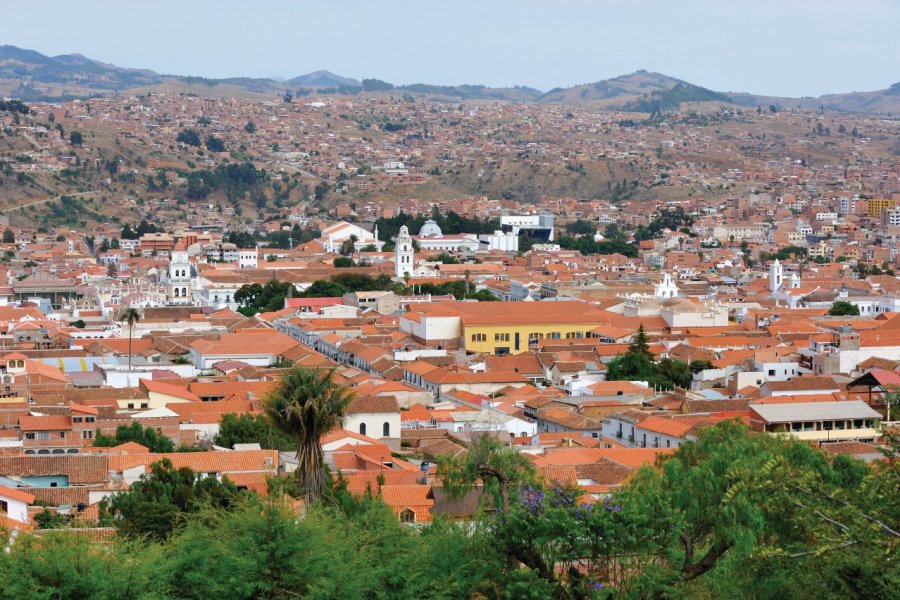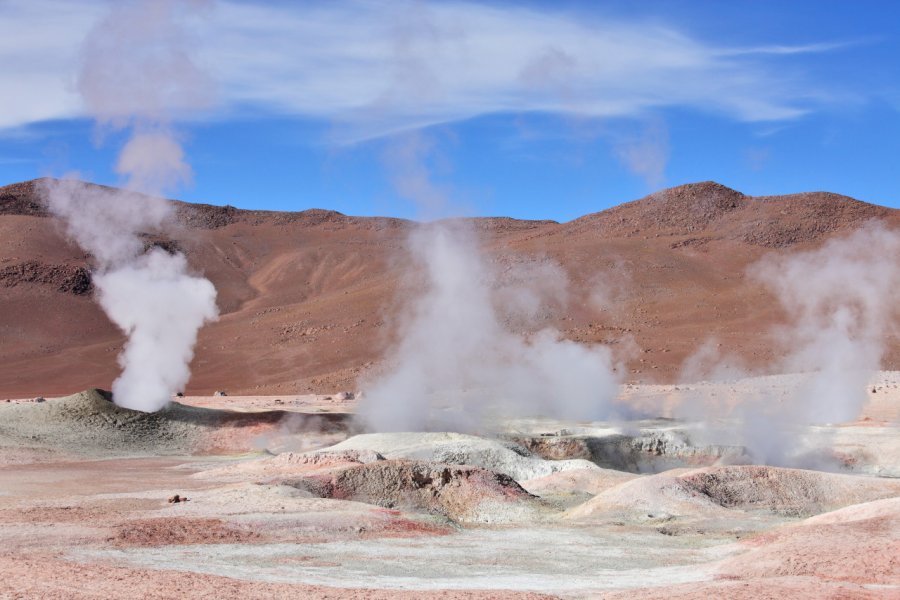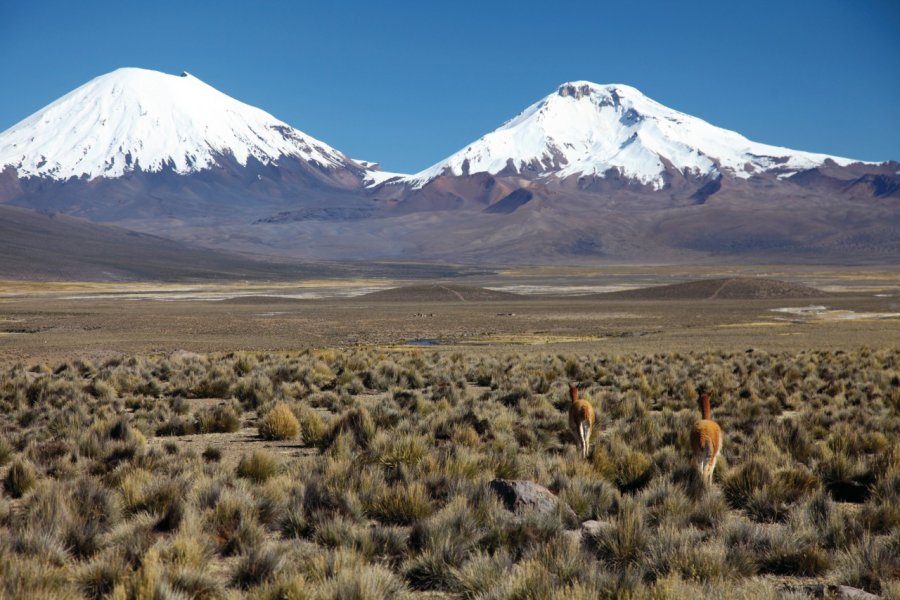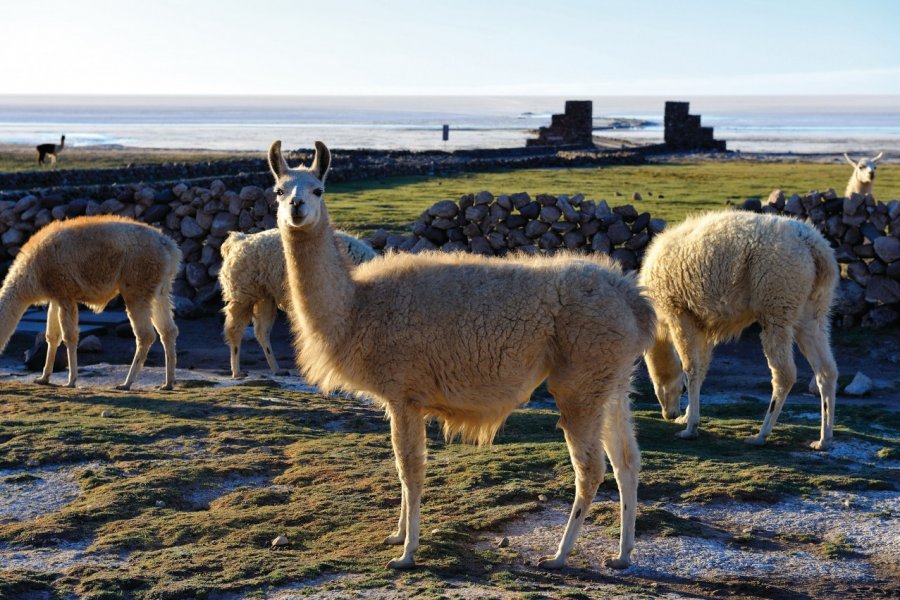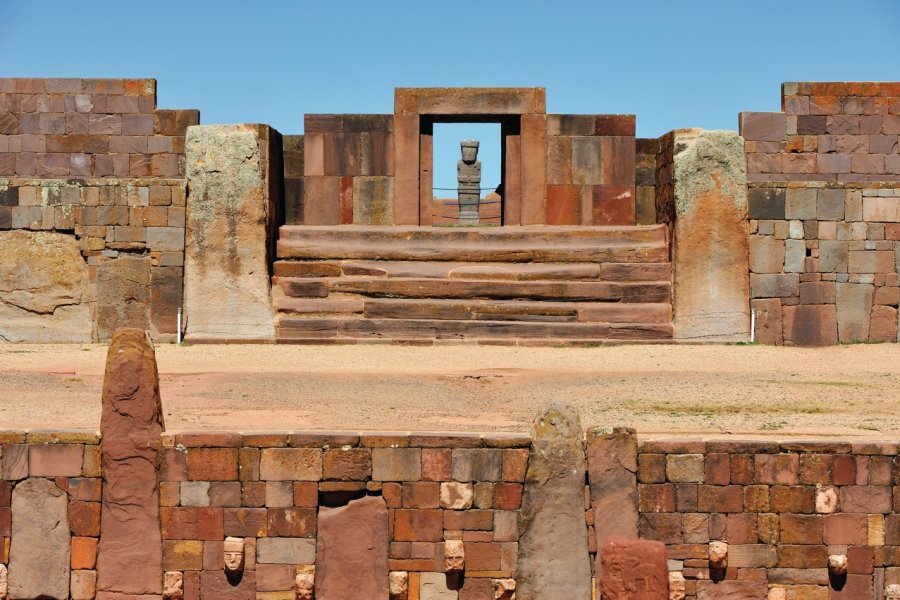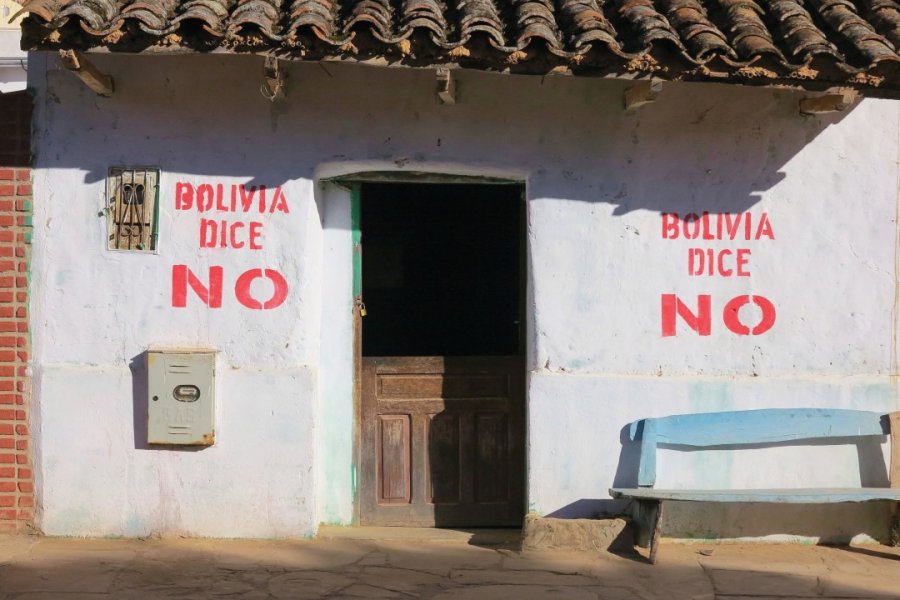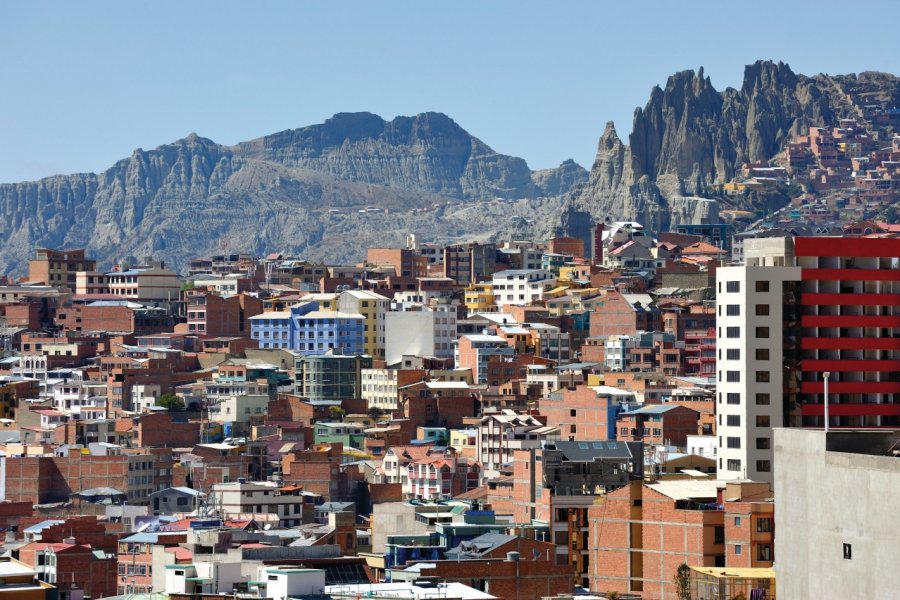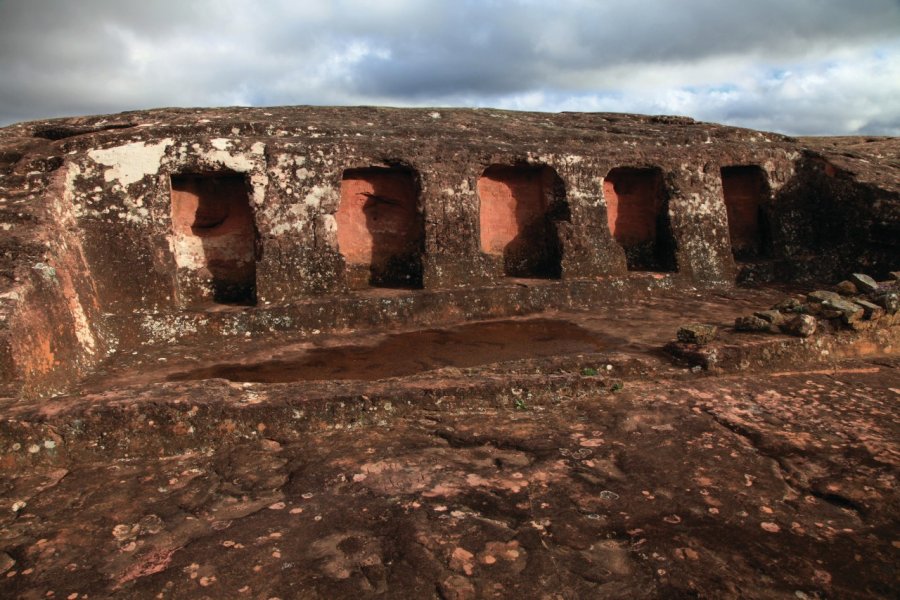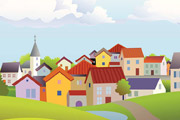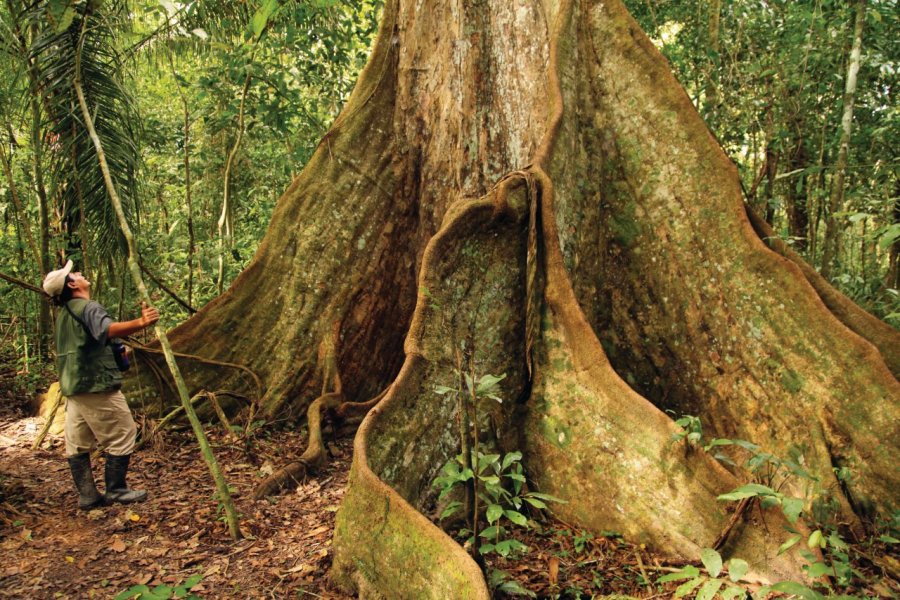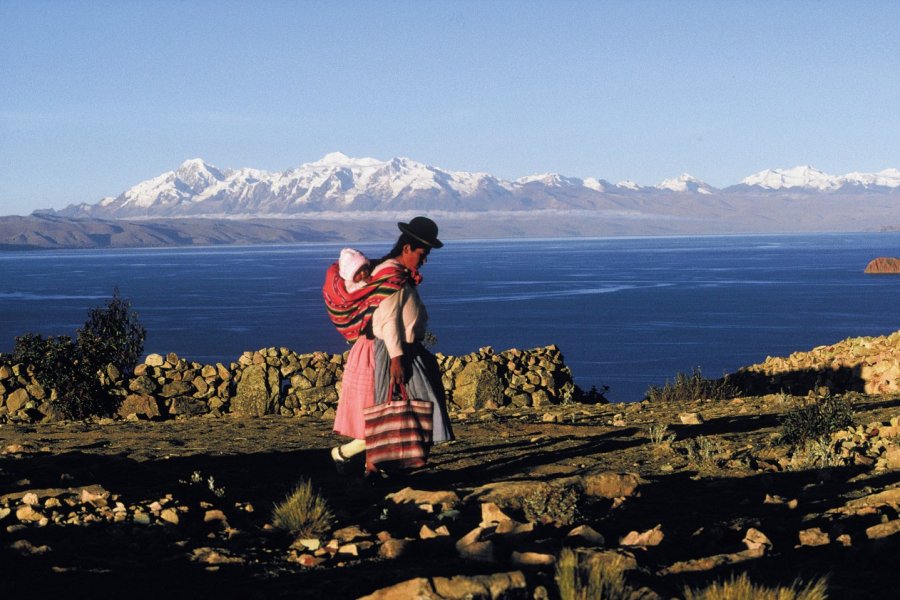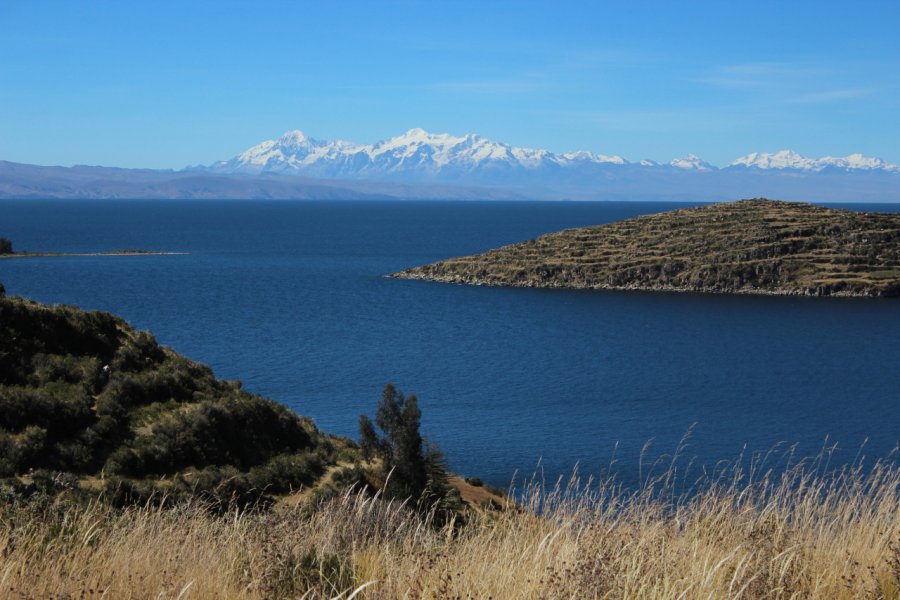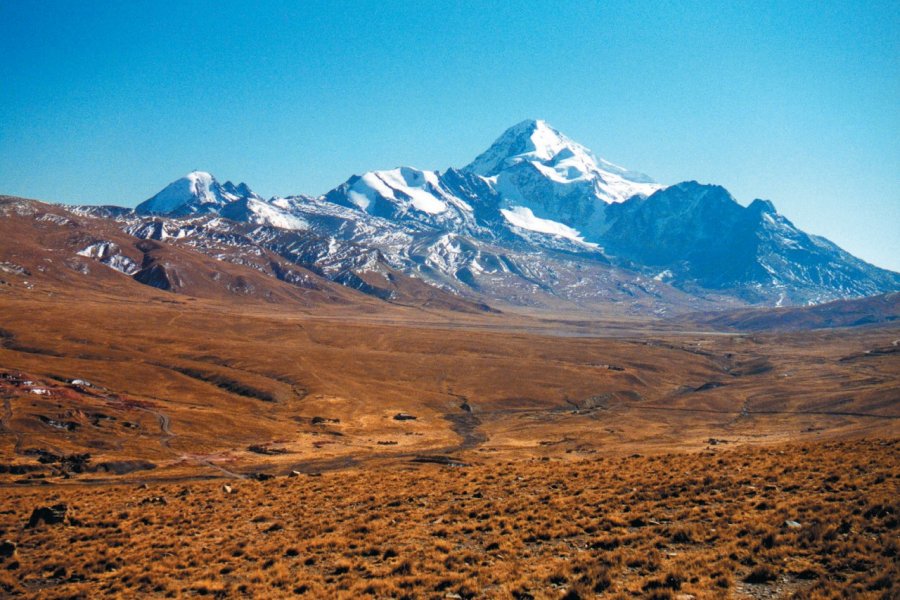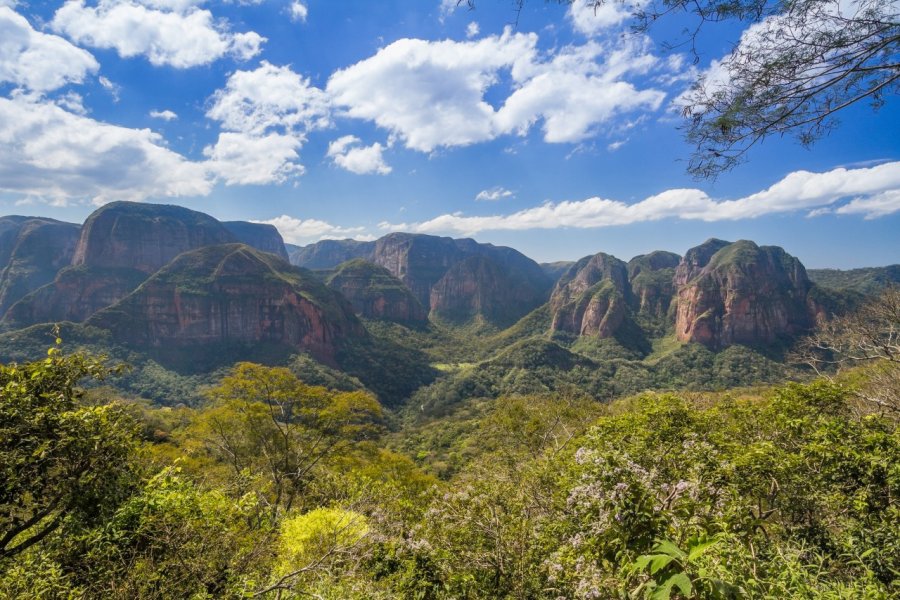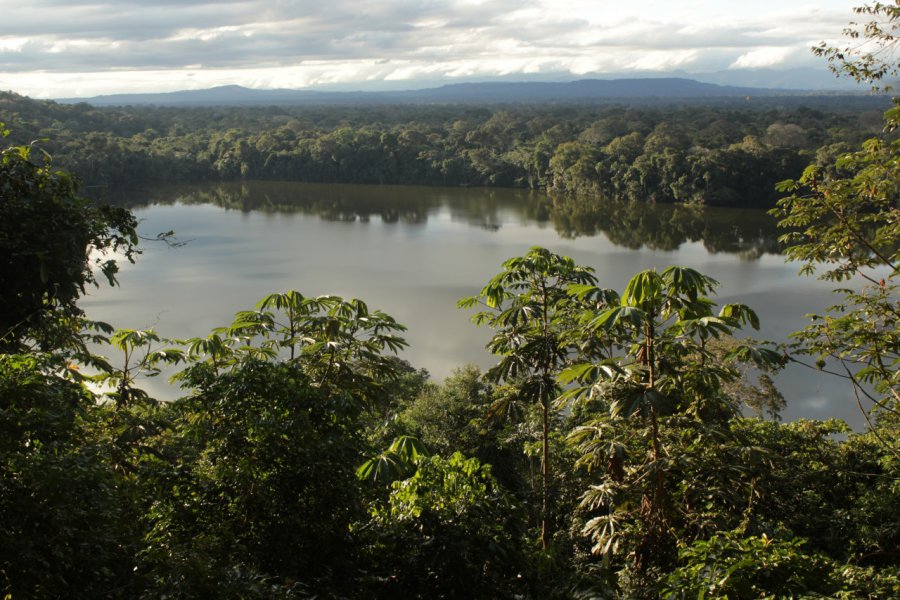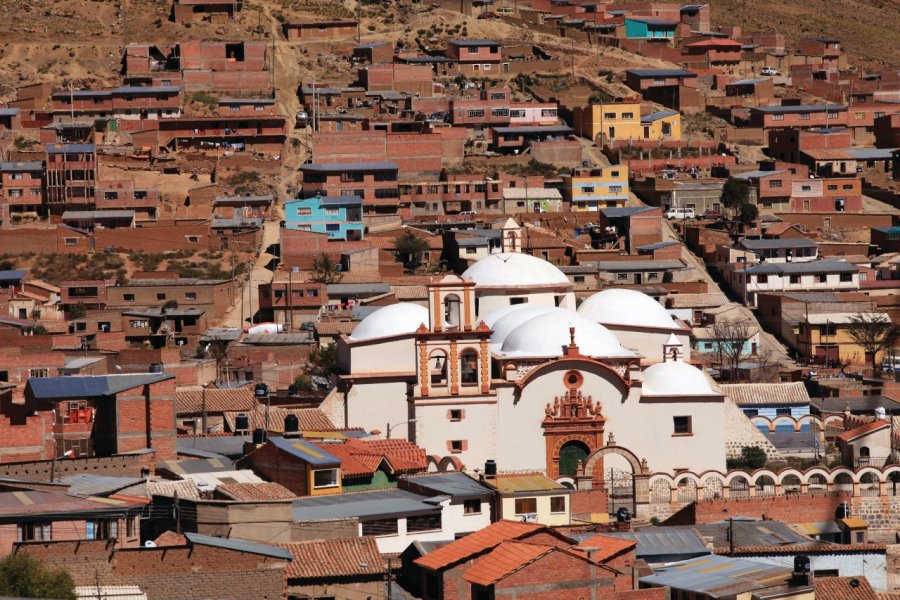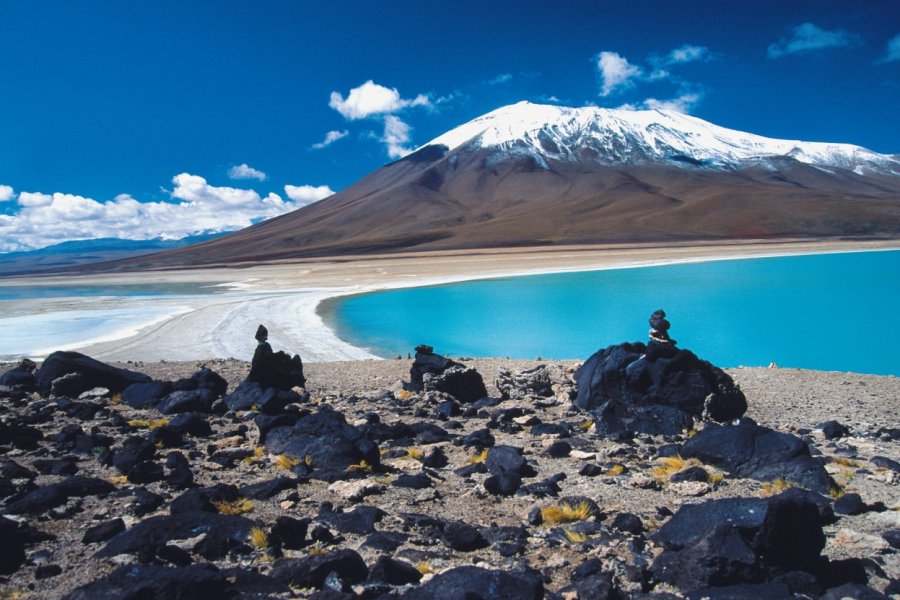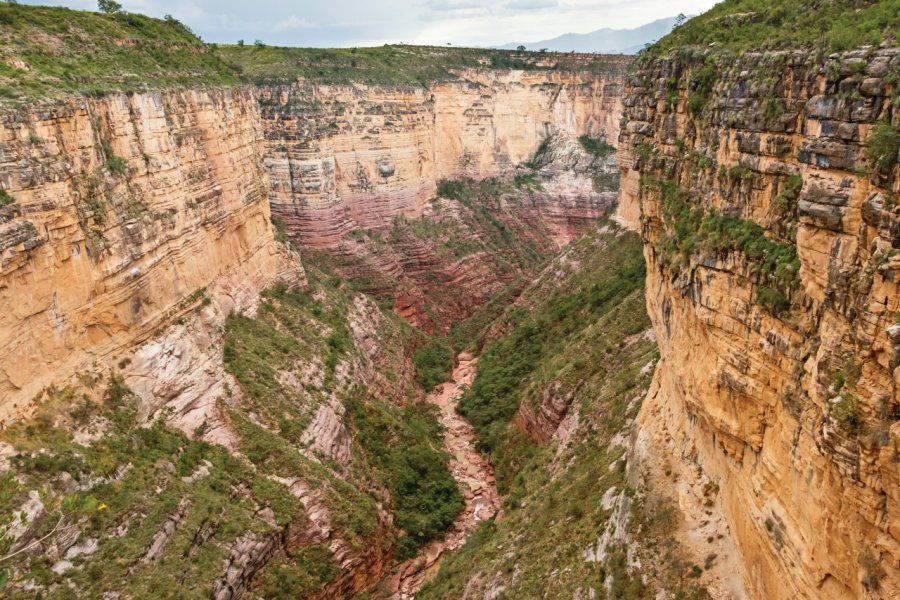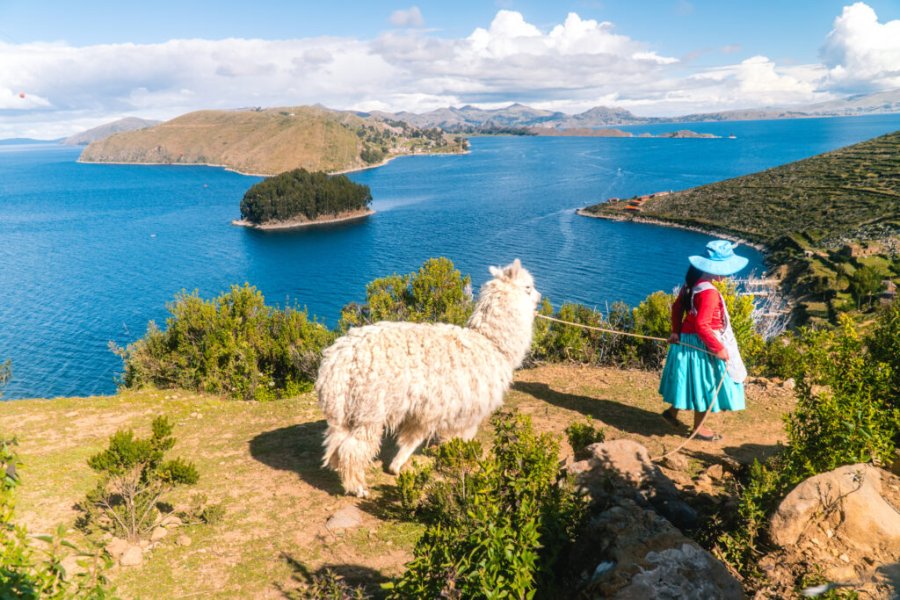Why go to Bolivia? The 10 good reasons to go Bolivia

A preserved folklore
Bolivia has kept its traditions and customs intact, especially its carnivals.

The arid landscapes of South Lípez
An excursion to this enchanting region is sure to be the highlight of your trip.

An intact and varied nature
The country's many national parks offer the traveler unforgettable experiences.

Sucre, a beautiful white city
Classified as a UNESCO heritage site, Sucre shines with its colonial architectural heritage.

The incredible Salar of Uyuni
The largest salt desert in the world, an immense expanse of immaculate white.

Numerous historical sites
Discover the ruins of Tiwanaku and El Fuerte de Samaipata, pre-Incan remains.

Mythical Lake Titicaca
Admire Lake Titicaca and its islands, with the snow-capped Andean peaks in the background.

Amazing La Paz
Perched at an altitude of over 3,500 metres, La Paz is an unusual and surprising city.

Its indigenous population
A patchwork of Andean ethnicities embodied by the cholas and their traditional dress.

Colourful markets
The mercados, places where people meet and exchange ideas, are the soul of the country.
What to visit Bolivia?

Interview: My Bolivia
By Mathilde Godbout, author of the guide
As a mountaineer and lover of cultural travel, Bolivia has completely bewitched Mathilde. This country, which was once home to the most prosperous city on the planet, where one can, in a few weeks, travel across the largest salt desert, climb immense peaks, crisscross the Amazon forest and sail on the highest navigable surface in the world, quickly became her favorite destination.
See the video of the interviewGood to know to visit Bolivia
 Timetable
Timetable
National museums are generally open Tuesday to Friday, 9.30am to 12.30pm and 3pm to 7pm, and Saturday and Sunday, 9am to 1pm. Private museums may have slightly different opening hours. Churches are open from dawn to dusk.
 To be booked
To be booked
Reservations are rarely necessary, except for guided tours and certain activities (Salar d'Uyuni, mountain biking down the Death Road, etc.), treks that require good preparation, some shows, workshops and various courses. We systematically inform you if this is the case. Generally, a reservation made the day before is sufficient.
 Main events
Main events
Bolivia has 11 public holidays, when most businesses are closed. In addition to these, a number of religious festivities, festivals and other events at national, regional or local level punctuate the calendar. These include the Carnival of Oruro in February, the Devil's Festival, the feast of the Virgin of Candelaria in Copacabana, the feast of the Virgin of Guadalupe in Potosi, the feast of St. John, Holy Week...
 Guided tours
Guided tours
Guided tours are compulsory at some sites (such as the Parque Cretácico de Sucre), where the presence of a guide is essential. Some museums and sites offer guided tours, usually in Spanish and English, more rarely in French. The rest of the time, you can visit cities or sites as you please, but the explanations of a qualified guide will often help you to grasp the culture and subtleties of an area (city, museum, monument or historic site). What's more, their rates are very affordable.
 Smokers
Smokers
Since February 2020, smoking has been formally prohibited inside all public places.
 Tourist traps
Tourist traps
On your visits, beware of unofficial guides who, in addition to often charging more than official guides, are untrained and have only superficial knowledge of their subject.
One of pickpockets ' tricks is to divert your attention: if someone throws ketchup, shaving cream or the like on your clothes or backpack, move away quickly. The thieves won't insist.
 What's very local
What's very local
It is essential to ask the authorization of the inhabitants before taking pictures of them, otherwise serious problems could arise! The belief that one steals the soul of a person by taking a picture is still very strong in Bolivia... In some parts of the country, you will find that it is even very complicated to get a portrait. Be respectful.
